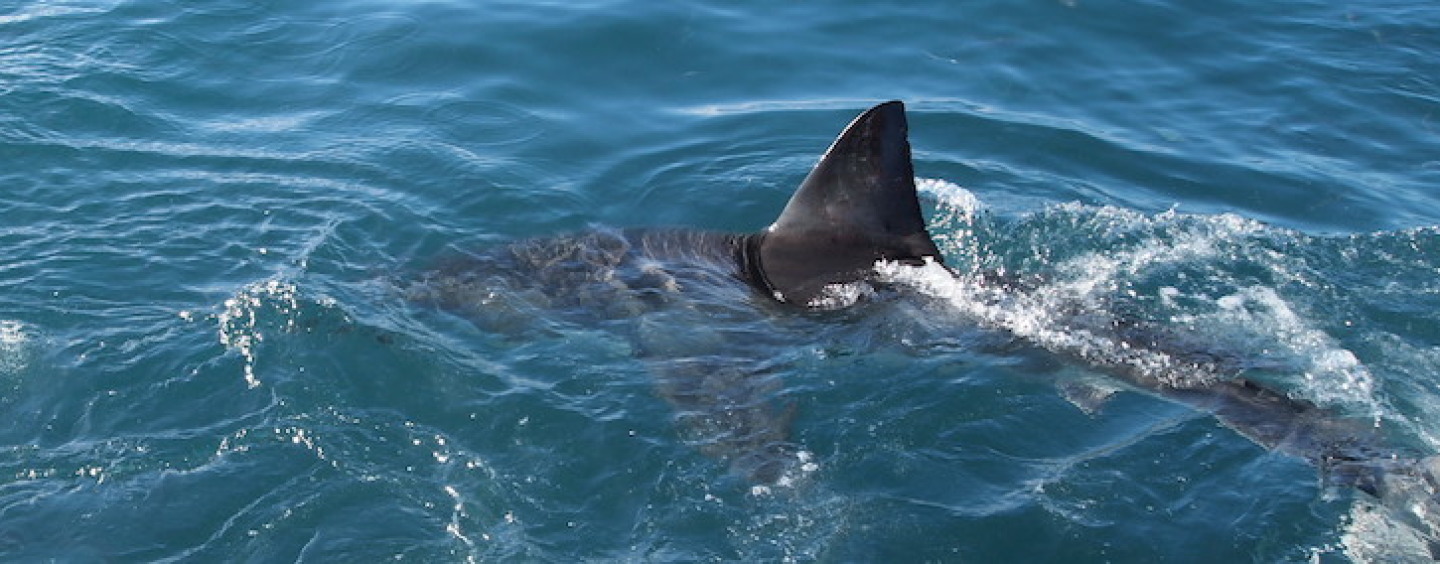Recent reports of fatal shark attacks have graced the covers of local newspapers, and have created a scare among residents and visitors.
Paige Hood interviews Dr Daryl McPhee, associate dean (research) for the Faculty of Society and Design at Bond University to discuss our fear of sharks, and encourage the Gold Coast community to appreciate these majestic creatures and respect their environment.
The waterways of the Gold Coast, that provide much delight and excitement for boaties and fishermen alike, is home to an underwater ecosystem quite complex and teeming with wildlife. Although there is no denying of shark presence in coastal waters, or in lakes or rivers, it is important to dispel many of the misconceptions about shark attacks that we do not get to read in the news.
With many Gold Coasters probably hesitant to dip their feet in the waterways because of the sharks, it is now valuable to understand why we actually fear sharks.
What does your research show about bull sharks?
My research is about unprovoked shark bites, rather than bull sharks specifically. Bull sharks, however, belong to one of three species (the other two being the white and the tiger shark) responsible for most bites and most fatal bites.
How many fatal shark attacks have been recorded in Australia?
Between 1982 and 2011, there have been 32 fatalities, so just over one per year.
How many shark attacks have been recorded on the Gold Coast?
There have been 14 shark attacks between 1982 and 2014.
What factors contribute to shark attacks?
The overlap between the number of people in the water and sharks. The two key factors are the number of people in the water and a set of conditions that may see feeding sharks present in an area for a period of time. The abundance of prey, such as marine mammals (seal, sea lions, whales) and schooling fish such as mullet, is also a factor.
Is the bull shark the main species for the most attacks? If not, which other species?
The bull shark attacks rank second behind white shark attacks, but have a slightly higher fatality rate—28.2% for bull sharks, 23.4% for white sharks.
Are shark attacks increasing on the Gold Coast?
There is no indication that unprovoked shark bites are increasing specifically on the Gold Coast. However, as the events are rare, it is statistically difficult to detect trends at local scales.
Should people really worry when swimming or is it just irrational fear?
There is a much greater risk of drowning at a surf beach than being bitten by a shark. While the fear of shark bite is well and truly heightened over and above the actual risk, human evolution suggests that:
- We fear what our ancestral history has prepared us to fear. Human emotions were road-tested over the evolutionary period. Yesterday’s risks prepare us to fear sharks, snakes, and spiders. Driving a car is not a risk that humans have been exposed to over what could be considered an evolutionary meaningful timeframe.
- We fear what we cannot control.
- We fear what is immediate. For example, teens are indifferent to smoking’s toxicity because they live more for the present than the distant future.
- We fear what is most readily available in memory. The media constantly reminds us about sharks, for instance.
Are the shark attacks due to larger issues (such as global warming or over fishing)?
There is no evidence that changes in the number of unprovoked shark bites is related to climate change. However, climate change will plausibly alter the geographic distribution of sharks and their prey. While overfishing is often put forward as a reason for unprovoked shark bite, it is not scientifically supported.
There is no information that suggests that sharks are food-limited. In the case of adult white sharks, their preys (marine mammals) are protected species and are increasing in number. It is potentially the increase in prey and its geographic expansion in the case of sea lions, rather than a decrease that may be seeing increased spatial overlap between sharks and water users.
What is being done (humanely) to deter shark attacks?
Cape Town (South Africa) has a Shark Spotters program which is a dedicated program where professionally trained observers spot sharks. Through a system of coloured flags at beaches, the spotters alert water users to the risk in real time.
There are also chemical and electrical deterrents, a number of which are based on an understanding of the biological and ecology of sharks and have been independently tested. Just like airbags and seatbelts none are 100% effective under all circumstances. However, the independent testing does demonstrate that the approaches can repel sharks. A challenge to moving forward may be the entry into the marketplace of further chemical and electrical deterrents (and other approaches) that lack independent scientific validation.
**************************************************************
Shark Nets: Help or Hindrance
By Patrick Molnar
The Shark Control Program is undoubtedly one of the most controversial topics in Australia. Shark nets and drum lines are the two most common types of shark control that aims to reduce the number of potentially dangerous sharks. Most of the people feel comfortable when entering the water knowing that shark nets are installed. But is this comfort worth the great number of non-targeted marine life that have been killed by shark nets?
One of the biggest concerns regarding shark nets comes from the whale migration season. From June to November is the time the majority of humpbacks migrate from the cold waters of the Antarctica to warmer waters of Australia. During the 2014 season, already eight whales have been caught and a baby humpback drowned at Bilinga shark nets on the Gold Coast. Already, two more whales have suffered because of the shark nets compared to the last migration season, and the phenomenon is getting more serious year by year.
There are other alternatives that would not cause the death of harmless sharks, whales, dolphins and other non-targeted marine life, but can keep dangerous sharks away. Using shark nets and drum lines to reduce the shark population may not be the appropriate solution to this problem, even if it comes with pointless death of harmless animals.
This is an excerpt from a story published online by the same author.
https://communebonum.wordpress.com/2014/11/03/does-australia-need-shark-nets-patrick-molnar-investigates/



























